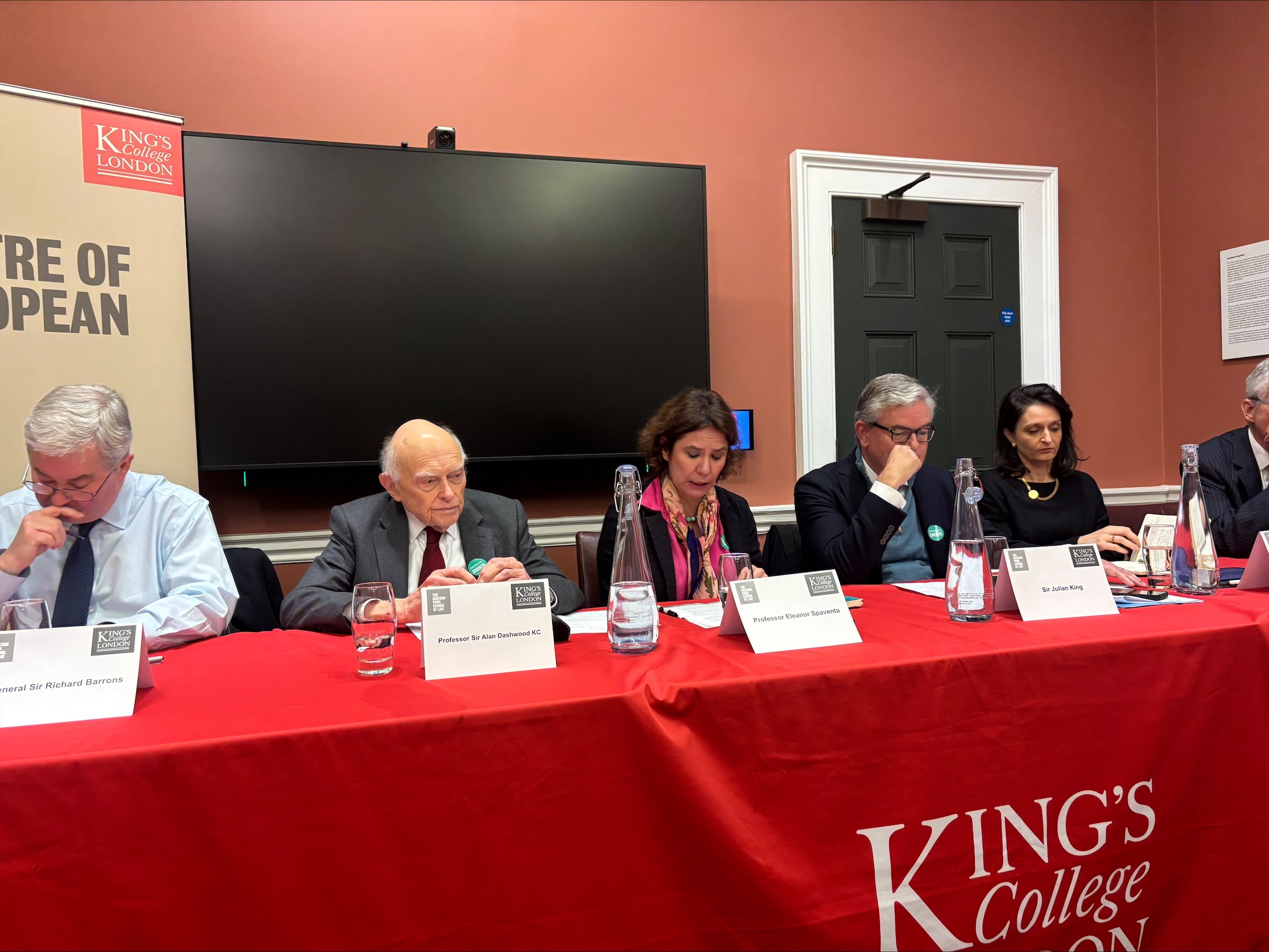The Future of EU and UK Foreign Policy
The discussion explored practical ideas around the process of establishing a broad and deep partnership between the United Kingdom and the European Union in the areas of foreign, security, and defence policy.

On November 14, in London, IEP@BU co-organized an expert panel discussion with the Centre of European Law at King’s College on the future of EU and UK foreign policy. The event was chaired by IEP@BU managing board member Eleanor Spaventa.
With the election of a new British Government in July, participants considered what has been perceived to be a clear commitment in the Labour Party’s manifesto to “an ambitious new UK-EU security pact to strengthen cooperation on the threats we face.” Speakers included former armed forces members, the EU Commission, academia, and public affairs.
The EU Ambassador to the UK Pedro Serrano and other distinguished invited guests and Government officials attended the event.
The event is part of a research project led by the Institute for European Policymaking (IEP) at Bocconi University, Milan. The project aims to devise a practical strategy for developing the highest level of structured foreign, security, and defence policy cooperation between the UK and the EU that is achievable in the medium term.
During the roundtable, participants considered whether an ambitious medium-term strategy is needed to develop an overarching structure for cooperation between the UK and the EU, encompassing foreign, security, and defense policy alongside counterterrorism and border control.
The discussion also noted the importance of the UK identifying a set of realistic objectives to implement these goals for the immediate and long-term future.
It is hoped that the formulation of a foreign, security, and defence policy cooperation proposal will attempt to resolve issues including:
The framework for cooperation
Participation in EU missions and cooperation on sanctions
Cooperation in developing defence capabilities
Security and law enforcement outside the areas of foreign, security, and defence policy
The relationship with NATO and broader relations with allies.
International reception
The discussion will be published to serve as a plausible template for a cooperation package capable of being negotiated with the EU.
Professor Oana Stefan, Director of the Centre of European Law delivered the institutional welcome on behalf of the Centre. The event was the latest in a series of events celebrating the Centre of European Law’s 50th anniversary.
IEP@BU does not express opinions of its own. The opinions expressed in this publication are those of the authors. Any errors or omissions are the responsibility of the authors.